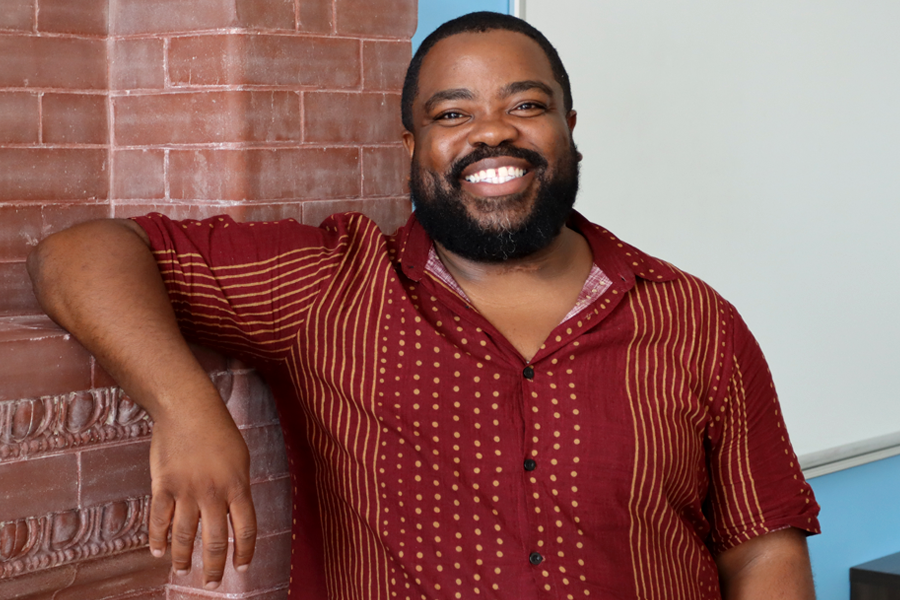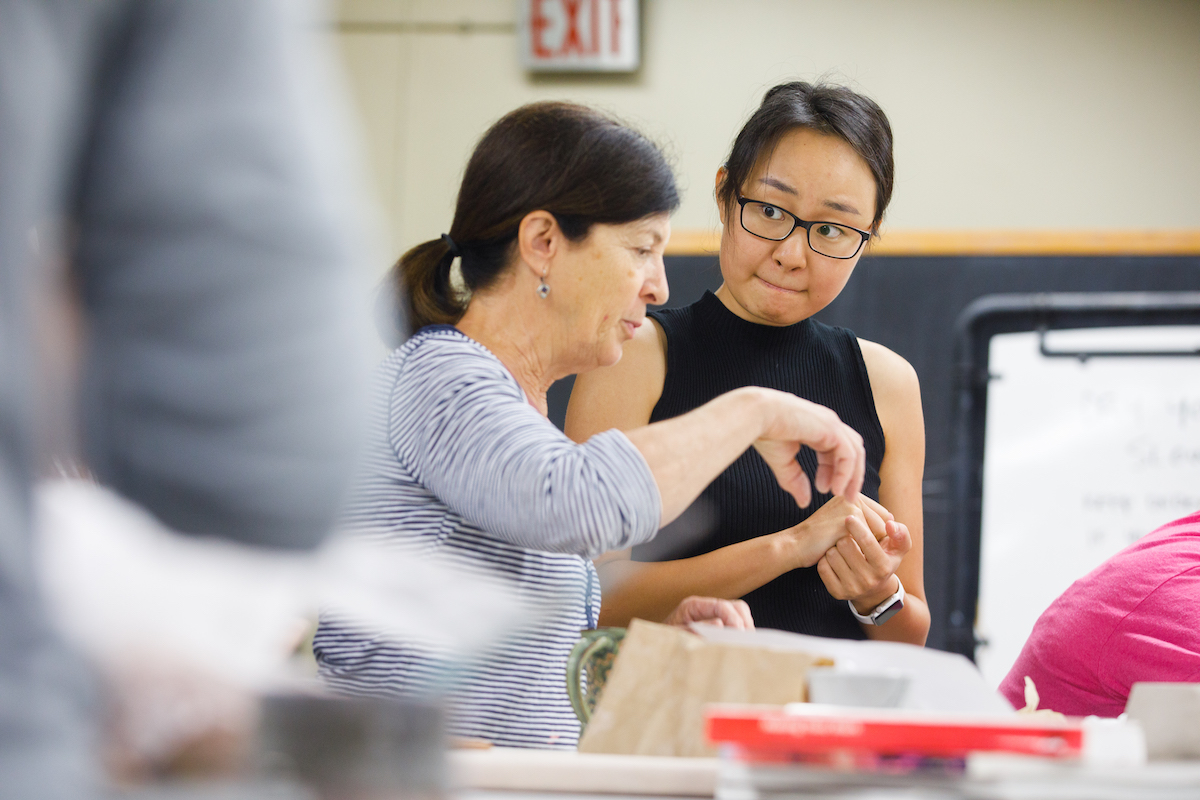Dr. Quinney helping Albion College, community strengthen relationships
Related Programs
Related Posts
Connect With Us

For some, strong fences make better neighbors.
For Associate Professor of Ethnic Studies Dr. Dominick Quinney, building a better community is about removing barriers and leaning into the occasional uncomfortable conversation.
“Diversity, equity and inclusion work can be muddy and messy, but to get to the area of truth you have to go through the muck of the past,” said Quinney, faculty director of the James L. Curtis Institute for Race and Belonging at Albion College. “One of the hardest things is truth, acknowledging and speaking truth. Sometimes it is not pleasant or good to receive, but it’s necessary to have those conversations to move forward and create connections.”
Through his role at the Curtis Institute, Quinney is encouraging conversations around diversity, equity and inclusion that are tearing down fences and building relationships in the classroom and the community.
Established in 2021, the Curtis Institute offers certificates in race and social justice, as well as community and youth development. It also will become part of the innovation badges program in the fall, Quinney said.
Innovation badges are digital micro credentials that represent a student’s specific accomplishment or skill. The Institute will offer students the opportunity to earn credentials in the foundations of race.
Additionally, the Institute promotes inclusive access to STEM knowledge, credentials and professions at Albion College. It currently serves approximately 30 students.
“We are working with students and the administration to create a much more inclusive campus, particularly through science, technology, engineering and math,” said Quinney, who came to Albion College in 2013 after receiving his doctorate from Michigan State University. He received his bachelor’s degree from Michigan State in 2007.
“As an addition to their regular degree program, the certificates help enhance what they are doing,” he said. “For example, a student with a biology major who participates in the race and social justice certificate program can have the opportunity to see how that impacts STEM in general.”
Quinney said the new badge program will give students the opportunity to learn terminology and topics around race conversations they can use to help them with internships and summer job placements.
“A large part of what we do is mentoring to tear down barriers and that is not just with our students but with any student at Albion,” Quinney said. “Engaging the Albion community is also very important.
“Last year we worked with the community and hosted a talk about the color of law and discriminatory housing practices and how places like Albion have been impacted. A lot of community eyes were opened by this. They didn’t realize things like this had been done.”
The Curtis Institute also sponsored the annual Dimensions in Diversity lecture series and partnered with the Gerald R. Ford Institute for Leadership in Public Policy and Service to sponsor an event related to banned books and their impact on the community.
All of these events are designed to start conversations and help provide a greater sense of community, Quinney said.
“I think recognizing folks in your community as neighbors is the key,” Quinney noted. “Everyone in the community is your neighbor, not just the people who live next door. We are all part of the community and need to feel welcome and included. It seems simple in nature but complex in action.”
While leaning into an awkward conversation can lead to progress, Quinney said helping students feel comfortable in the classroom can lead to them feeling more empowered to have those conversations.
“You have to have a space of comfort,” Quinney said. “If you are comfortable, you are going to be more open.”
To encourage that openness, Quinney said he tries to keep the atmosphere in his classroom informal and give students time to get to know each other and their surroundings.
“I do not wear a tie and jacket because that is not who I am,” he explained. “We take as much time as possible in class to get to know each other, which helps create a stronger connection.
“I have always said the one goal of my class is to just teach others to be better human beings. How we arrive at our different identities is powered by connecting with those who are different from us.”
According to Quinney, another helpful tool in creating a comfortable space is laughter.
“I try to have a good belly laugh at least once every day,” he said. “We get caught up in life and forget to laugh. Some content can be heavy and scary, so you have to balance that and bring humor to it. Laughter is the space that connects a lot of people.”
Quinney said he also finds comfort in music passions.
“I love music. My parents were both DJs so I grew up with music in the house,” said Quinney, a native of Lansing. “They would work on set lists during the week so they could play weddings and parties on the weekend. We didn’t watch TV; we had music.”
There is a song list on Quinney’s phone for just about every daily happening.
“If I’m writing then I’m listening to music with no words, usually jazz,” Quinney explained. “If I’m in the car driving to work, it’s energy-lifting music. It’s hip-hop in the morning when I’m cooking.”
His favorite album?
“Janelle Monae, ‘The Electric Lady,’” Quinney said. “It helped me understand my identity and just being happy with who you are.”
Understanding who you are, while understanding others with different backgrounds, is a key element in conversations around belonging.
Quinney said he is encouraged things are changing. As an example, he pointed to the recent establishment of the Albion College chapter of the NAACP, which was aided by the Albion chapter of the NAACP.
“A lot of work has been done, but there is still more work to do,” Quinney said. “You have to do the work. We tend to shield ourselves sometimes, but if we lean into that vulnerability, change happens.”
